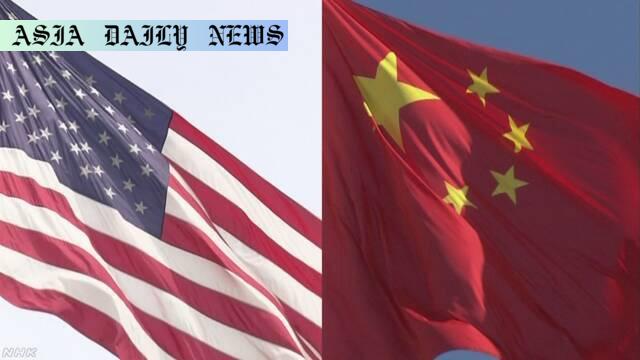Exit Restrictions: US Patent Office employee and Wells Fargo exec barred from leaving China amid legal and visa issues.
- US Patent Office employee denied exit from China due to undisclosed government employment.
- A Wells Fargo executive in China also faces exit restrictions amid a criminal investigation.
- Incidents highlight diplomatic and legal challenges affecting US-China relations.

Introduction: Exit Restrictions on US Citizens in China
In a recent revelation that has raised eyebrows among policymakers, the US State Department confirmed that two prominent individuals—a federal government employee from the US Patent and Trademark Office and a Wells Fargo executive—have been barred by Chinese authorities from leaving the country. These cases highlight escalating concerns over legal standards, visa requirements, and the mounting tension in US-China relations.
The Case of the US Patent Office Employee
The state-sponsored action against the federal government employee, an unassuming Chinese-American man, began during his personal visit to China several months ago. According to reports, his disclosure oversight regarding government employment on his visa application sparked the situation. Chinese immigration authorities found this omission significant enough to impose a travel ban, leaving the individual unable to return to the US. The US State Department, closely monitoring the case, has been engaging with China to seek a resolution. The situation has not only unsettled the individual’s life but has also alarmed the government about the risks facing US personnel overseas.
Wells Fargo Executive Detention: A Parallel Event
In a separate but equally concerning episode, a senior US banking executive from Wells Fargo has found herself entwined in a criminal proceeding under Chinese law. While the specifics of the alleged crime remain undisclosed, this case has highlighted the risks of cross-border cooperation within international businesses. The company has reportedly responded by halting employee travel to China—a precautionary measure reflecting the gravity of the incident. This travel restriction not only affects Wells Fargo’s operations but also casts a shadow over global business diplomacy.
Legal Context and Diplomatic Implications
China’s strict enforcement of domestic laws on foreign nationals has long been a point of contention in international relations. The Chinese Foreign Ministry’s assertion that all individuals in China, regardless of nationality, need to adhere to their legal system underscores this stance. The legal challenges presented by these cases have created ripple effects for US-China diplomacy, leaving both governments to navigate their complex foreign policy issues further.
Repercussions for US-China Relations
Such incidents stress the delicate nature of the already strained US-China relationship. With economic policies shifting, trade disputes intensifying, and tensions growing over territorial claims, these detentions add another layer of complexity. The diplomatic resolution of these restrictions will undoubtedly serve as a barometer for gauging the two nations’ ability or inability to resolve issues amicably in the coming months.
Conclusion: Navigating International Disputes
The exit restrictions imposed on the US government employee and the Wells Fargo executive signify a critical juncture in global diplomacy. These events remind professionals and policymakers alike to approach cross-border ventures with heightened diligence and underscore the importance of transparent communication in visa applications. For now, the world watches closely as the US and China engage in a challenging but necessary discourse to resolve these and other complex issues.



Commentary
Understanding the Magnitude of Exit Restrictions
The recent news of two US citizens—a federal employee and a bank executive—being barred from leaving China highlights a crucial yet often overlooked aspect of international relations. The implications of such restrictions extend far beyond individual cases, touching on issues of legality, diplomacy, and global business dynamics. As an observer of these events, the broader ramifications become all too clear.
Legal Complexities Inherent in Cross-Border Travel
At the heart of these detentions lies a series of legal complexities. For the federal employee, failure to disclose government employment on a visa application underscores how minor oversights can spiral into international incidents. Simultaneously, the lack of detailed charges against the Wells Fargo executive raises questions about standards of evidence and fairness in foreign judicial proceedings. These cases serve as stark reminders of how vital it is for professionals to navigate legal systems carefully when working or traveling internationally.
Implications for US-China Relations
These incidents come during a tumultuous period in US-China relations. Trade disputes, technological competition, and human rights issues have created deep fractures in bilateral cooperation. Such legal cases could further strain this relationship, making it an uphill battle for diplomats on both sides. The extent to which these incidents impact business and diplomatic exchanges will be closely monitored and could dictate future policy decisions.
The Need for Vigilance and Adaptation
For corporate entities and government agencies alike, these developments serve as a wake-up call. Multinational enterprises must weigh the risks of operating overseas and implement strategies to protect their personnel and interests. Additionally, governments need to engage in transparent negotiations to safeguard their citizens abroad while respecting foreign legal frameworks.
Final Thoughts
Ultimately, these exit restrictions reflect the intricate dance of modern diplomacy and international law. While the individuals involved face undoubtedly challenging circumstances, the broader lessons stemming from these cases cannot be ignored. As the world moves toward increasing globalization, nations and businesses must develop stronger mechanisms for addressing such complex issues. For now, these cases are stark reminders of the fragility of international relations and the need for vigilance when crossing borders.